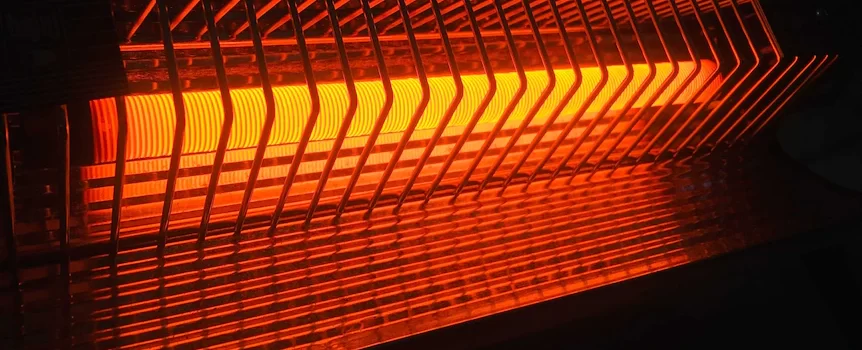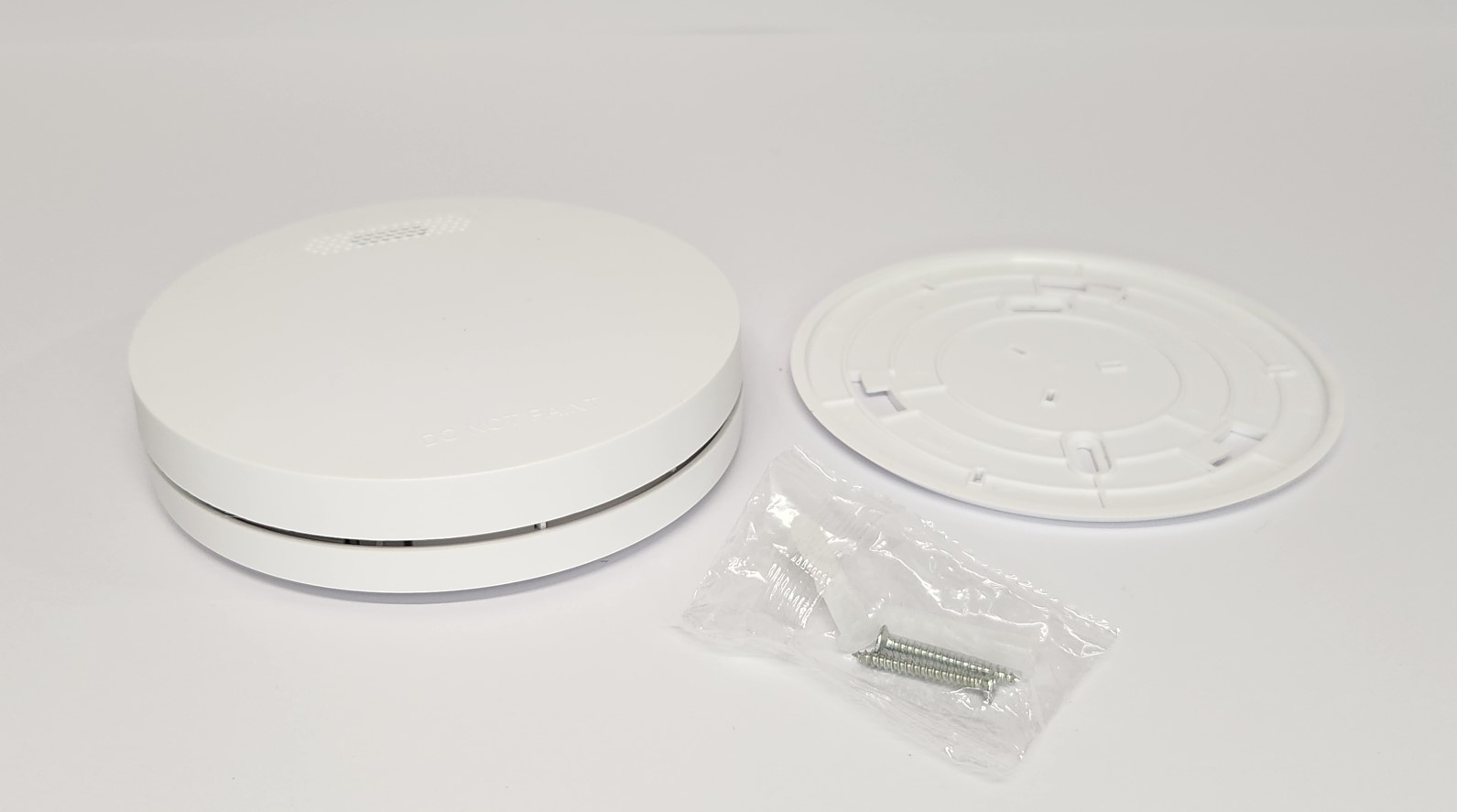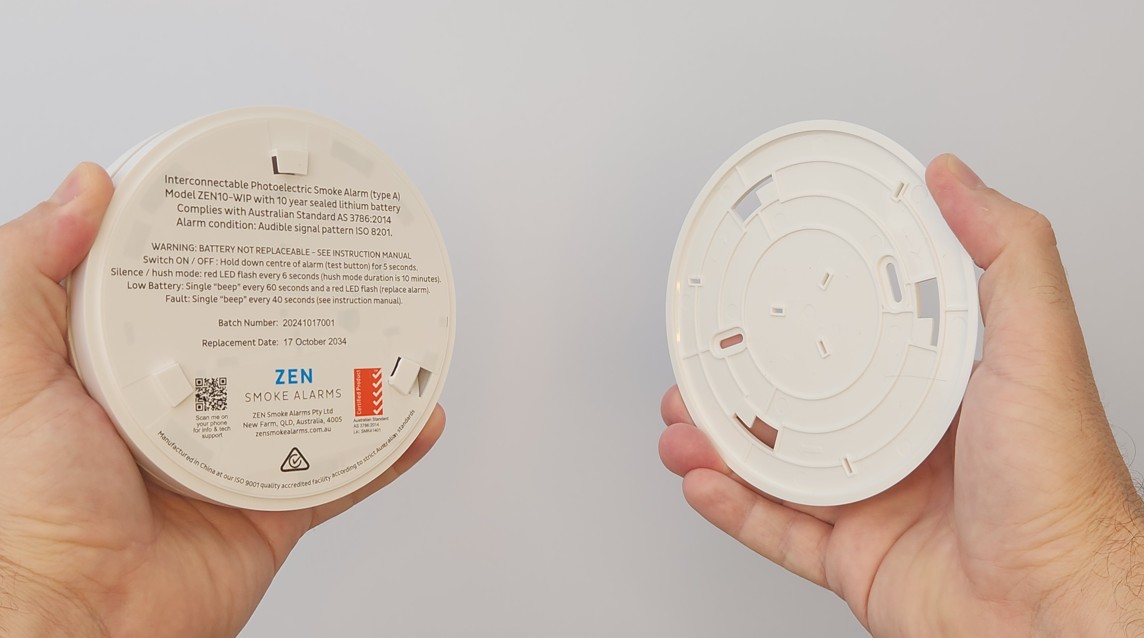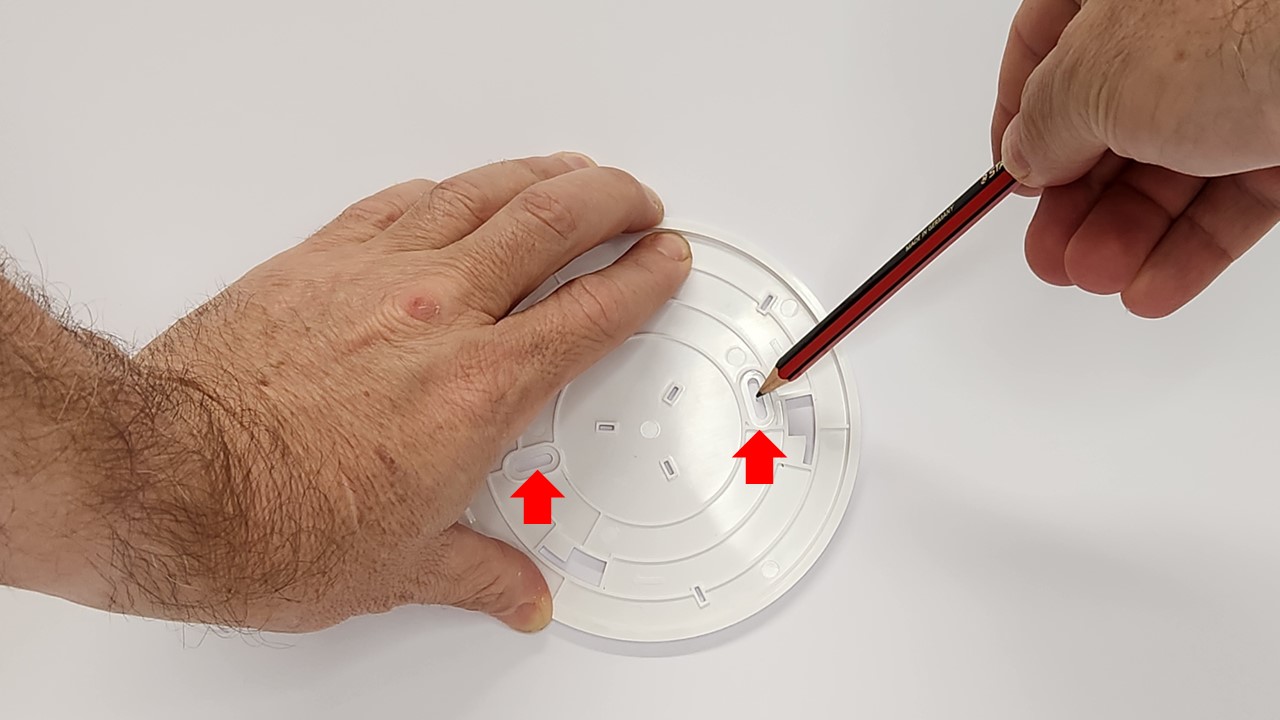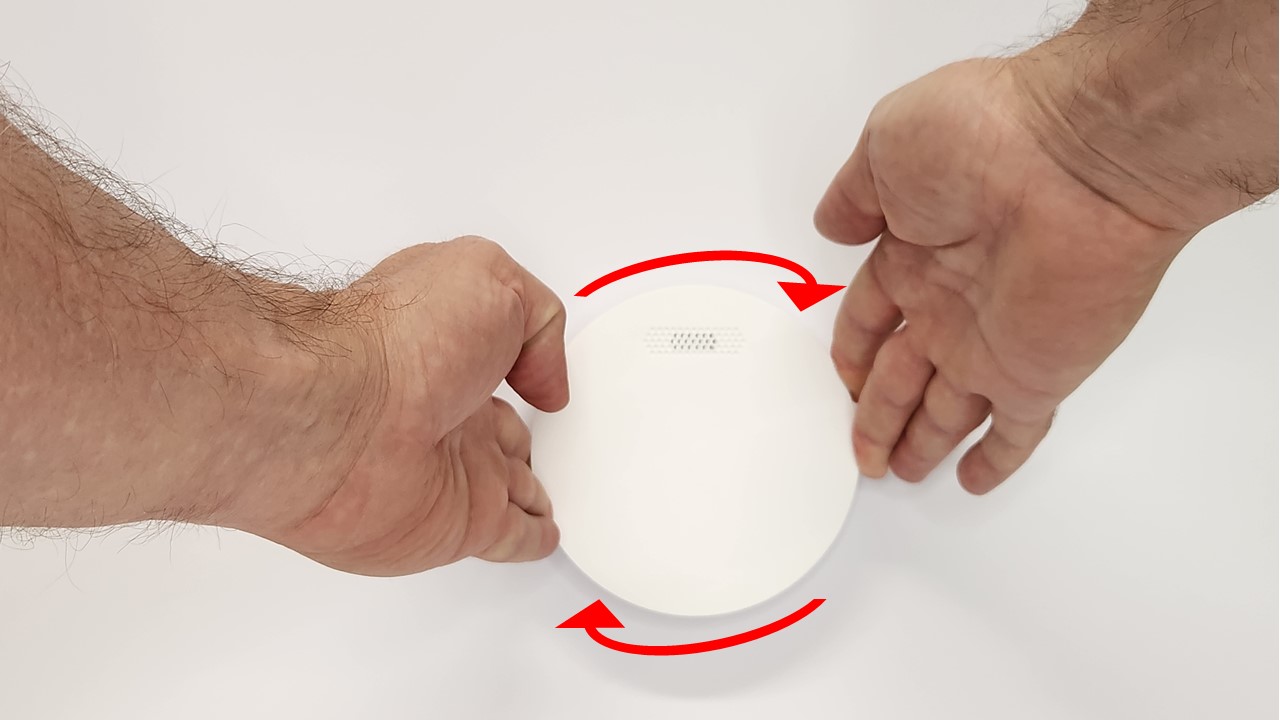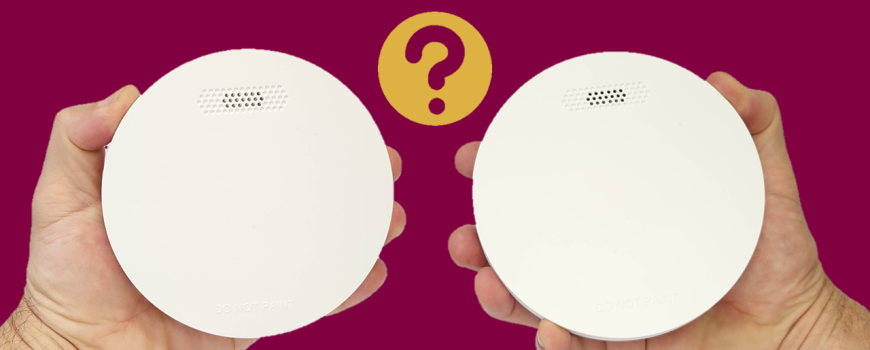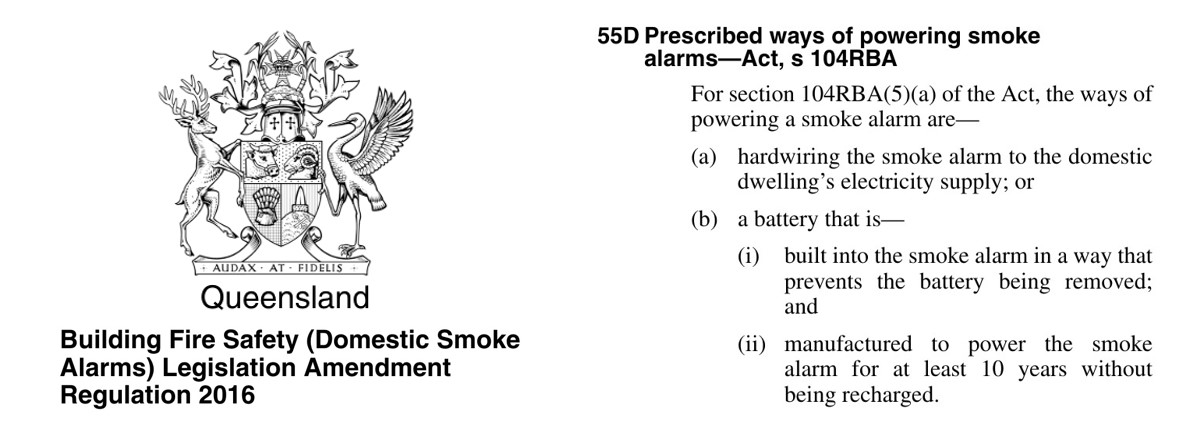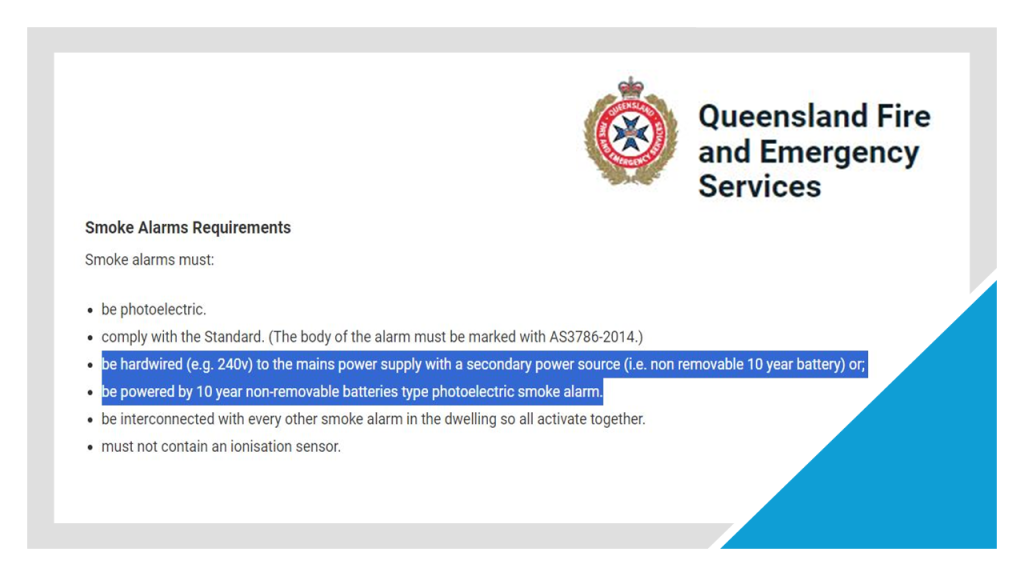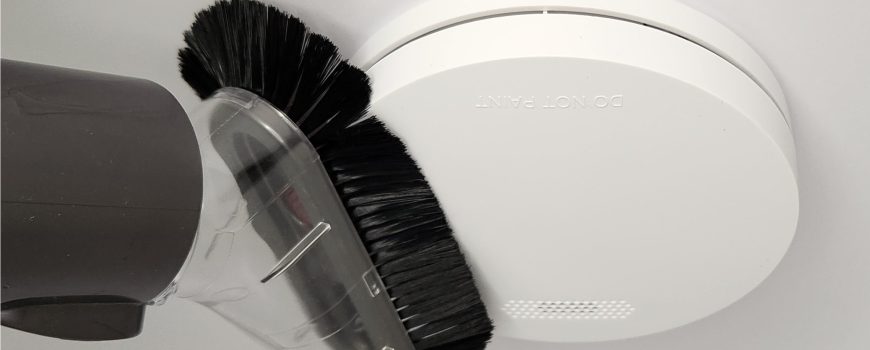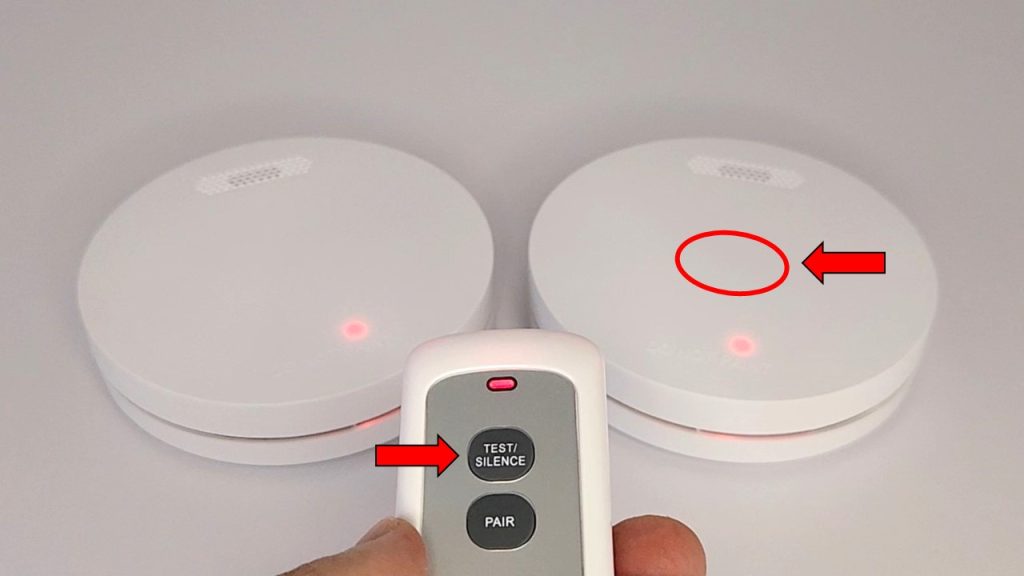With the onset of Australia’s winter season, the drop in temperature naturally means we turn to heaters, fireplaces, electric blankets and other devices to keep warm. Believe it or not Queensland can experience some chilly winter nights, and certain parts of the state also receive snowfall. Whilst heating devices provide much-needed comfort, they also increase the risk of household fires. Fire services right across Australia report a significant uptick in house fire call-outs during the colder months.
If our risk exposure to household fires increases during winter then it makes sense that interconnected fire alarms should form an essential part of home safety. Ensuring your photoelectric smoke alarms are interconnected, functional and properly maintained can make all the difference in preventing fire-related tragedies this winter. This article will explore home fire safety tips and hacks to keep you and your loved ones safe during winter time.
Interconnected Fire Alarms
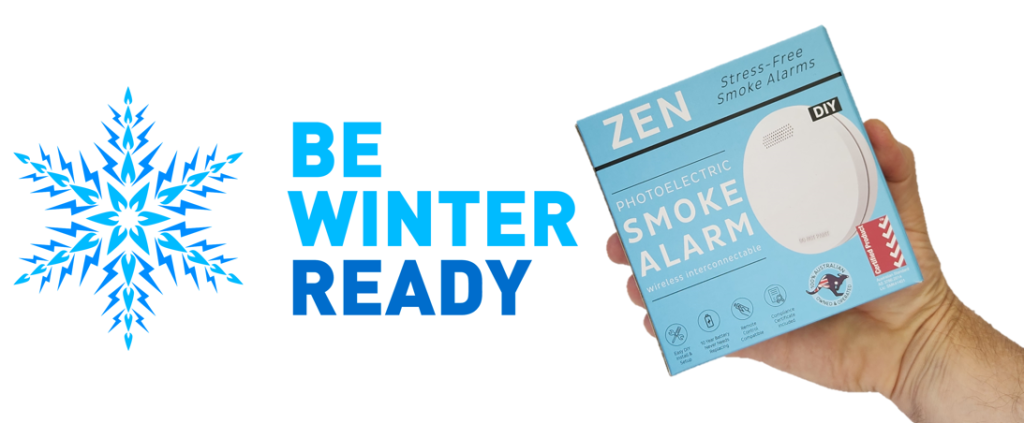
Why Interconnected Fire Alarms Matter In Winter
Photoelectric interconnected fire alarms are your first line of defence in detecting fires early. When a fire breaks out, every second counts. Winter is Australia’s peak house fire risk period – a working interconnected fire alarm provides the crucial warning needed to escape safely. According to Queensland Fire and Emergency Services (QFES), having a working interconnected photoelectric smoke alarm doubles your chances of surviving a house fire in winter.
Where Do I Install Interconnected Fire Alarms?
Ensure you have interconnected fire alarms installed inside every bedroom, in the hallways outside sleeping areas, and on every level of your home. The smoke alarms should be interconnected so if one alarm activates, they all do. Even though ZEN Smoke Alarms are suitable for both wall and ceiling mounting, it is preferable to install smoke alarms on the ceiling, as smoke rises.
If installing on a wall, position them high, but at least 30 cm away from corners to avoid dead air spaces. Avoid installing interconnected fire alarms near open windows, doors, or ducted air vents where drafts might interfere with their operation.
Clean And Test Your Interconnected Fire Alarms
At The Onset Of Winter
You want your interconnected fire alarms to work when you need them most. Throughout the year, dust, cobwebs and other foreign particles can accumulate in and around your interconnected fire alarms, reducing their effectiveness. Give them a clean at the start of winter time – gently vacuum the exterior of the fire alarm with a soft brush attachment from a vacuum cleaner, removing any dust or debris as you do so.
Test your photoelectric smoke alarms monthly to ensure they are a) functioning and b) interconnected.
ALL interconnected fire alarms should activate their audible and visual indicator (red LED) within 10 seconds of the first one being pressed. ZEN interconnected fire alarms can be tested by pressing the centre surface once on any alarm, or by simply pressing the test button once on the optional remote control. ZEN Smoke Alarms test mode will silence automatically after approximately 10 seconds.
Heating Equipment – Winter Safety
One of the primary causes of household winter fires is the misuse of heating equipment. Whether you use space heaters, fireplaces, or electric blankets, it’s important to follow basic safety guidelines (often forgotten). Space heaters should be kept at least one meter away from flammable materials such as curtains, bedding, and furniture. Do not place clothing on or near the heater as this creates a fire risk. Ensure the heater is on a stable surface and never leave it unattended, especially while sleeping.
Winter heating item causes major house fire
Fireplaces In Winter
Fireplaces should be inspected at the start of winter and cleaned regularly to prevent the buildup of creosote, a highly flammable byproduct of burning wood. Use a fire screen to catch sparks and embers, and always extinguish the fire completely before going to bed or leaving the house.
Electric Blankets
Electric blankets and heating pads should be checked for frayed cords or damage before use, and never folded or left on for extended periods. To test an electric blanket lay it flat on top of the bed, then switch it on for five minutes before putting it on the bed for use to confirm it is okay.
How to inspect an electric blanket
Winter Wheat Bags
Wheat bags are designed as therapeutic aids to be placed on the body and are not designed as a heating replacement for water bottles in the bed. Be very careful not overheat the wheat bag in the microwave – constant re-use can result in the reduction of the moisture content of the wheat, causing it to overheat resulting in fires or burns. Leave wheat bags to cool on a non-combustible surface (such as the kitchen sink) and don’t reheat the bag until it has completely cooled. Check the life of the wheat bag according to manufacturer’s instructions.
Safe Use Of Electrical Appliances In Winter
Winter often sees an increased use of electrical appliances, which can overload circuits and cause fires. Avoid using multiple high-wattage devices on the same outlet, and never use extension cords for long-term appliance connections. Check all cords for wear and tear, and replace any damaged ones immediately. Choose electrical power boards which contain inbuilt overload protection.
Kitchen Safety During Wintertime
Winter brings an inclination for hearty meals and more cooking. Ensure that your kitchen is a fire-safe zone by never leaving cooking unattended and keeping flammable items (tea towels etc.) away from the stove. It’s always wise to have a ZEN fire blanket easily accessible in the kitchen and to know how to use it effectively.
Create And Practice A Home Fire Escape Plan
A smoke alarm is most effective when paired with a well-rehearsed home fire escape plan. Make sure everyone in your household knows the sound of the smoke alarm and understands what to do when it goes off. Plan two ways out of each room and designate a meeting place outside your home. Practice your fire escape plan twice a year (including at the start of winter) to ensure everyone is prepared.
Conclusion – Winter Fire Safety And Your Smoke Alarms
Winter is a great season to enjoy the warmth and comfort of home (and also the reduced humidity in QLD!), but it is also a time to be vigilant due to the increased risk of household fires. By taking the time to properly install and maintain photoelectric interconnected fire alarms, sensibly using heating equipment and electrical appliances, and by creating a solid fire escape plan, you can keep your loved ones safe and sound. Stay warm, stay safe, and ensure your photoelectric interconnected fire alarms are ready to protect you from winter’s hidden dangers!

Want to know more? Watch our ZEN Smoke Alarm YouTube channel or call us on 0478 596 402 today
We love talking smoke alarms!
ZEN Photoelectric Smoke Alarms
New Farm, QLD, 4005

